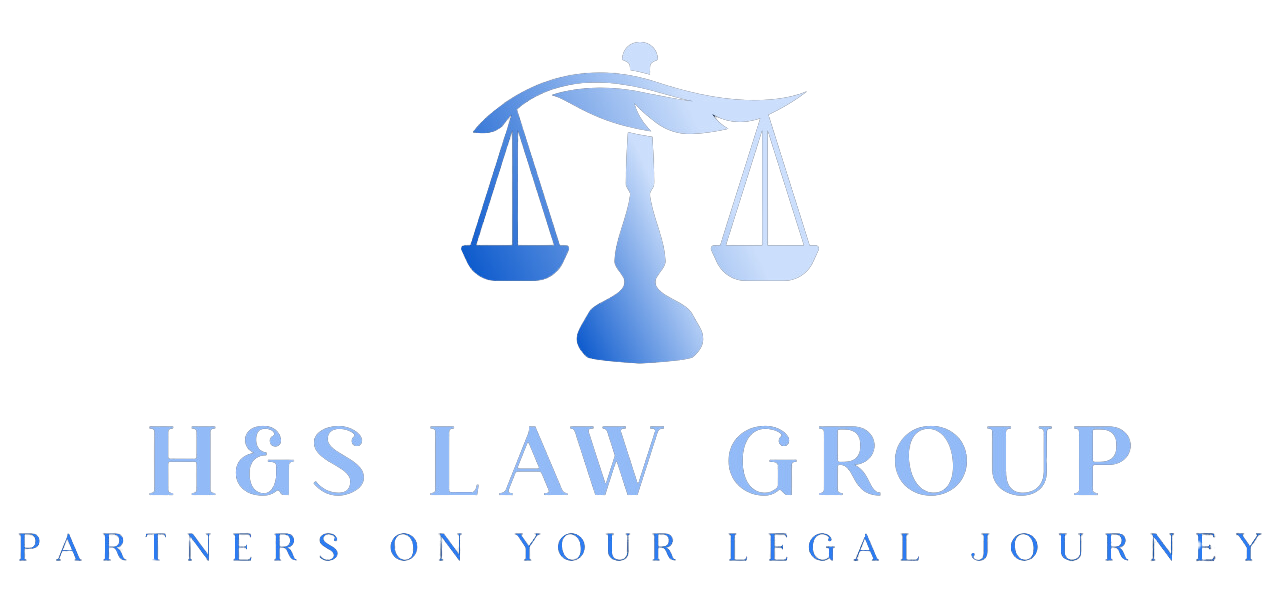
Top Mistakes to Avoid During a Civil Lawsuit
Civil lawsuits involve complex procedures and strict rules. Understanding potential missteps can significantly affect the outcome of your case; therefore, navigating the legal system requires careful attention to detail.
This guide highlights common errors people make during civil litigation, helping you understand what pitfalls to sidestep. Consulting with a legal professional, H&S Law Group, is always recommended for specific guidance tailored to your situation.
Missing Important Deadlines
N.J. courts operate on strict timelines. Filing documents, responding to motions, or meeting other deadlines set by the court or procedural rules is fundamental. Missing these dates can have serious repercussions.
Failure to adhere to deadlines might result in the court dismissing your claims or defenses. It could even lead to a default judgment against you, meaning you lose the case automatically simply because you didn’t respond in time. Treat every deadline as firm.
- Track all dates: Use a reliable calendar system.
- File early: Avoid last-minute rushes.
- Confirm receipt: Ensure the court received your filings.
At H&S Law Group, our attorneys can help you meet your deadlines today.
Ignoring Requests for Information (The Discovery Phase)
The discovery phase is where both sides formally exchange information and evidence. This often involves answering written questions (interrogatories) or providing requested documents. Ignoring or improperly responding to these requests is a significant error.
Courts expect full cooperation during discovery. Deliberately withholding information or providing incomplete answers can lead to sanctions. A judge might fine you or prevent you from using certain evidence later in the case, weakening your position considerably.
- Respond fully: Address every part of the request.
- Be truthful: Provide accurate information.
- Object properly: Consult your lawyer if a request seems inappropriate.
Being Dishonest or Hiding Evidence
Your credibility is one of your most valuable assets in a lawsuit. Lying under oath (perjury) or intentionally concealing evidence that could harm your case is not only unethical but also illegal. Judges and juries are adept at spotting inconsistencies.
Destroying your credibility can ruin your chances of success, regardless of the underlying facts. Furthermore, perjury or obstruction can lead to separate criminal charges and severe penalties from the court overseeing the civil case. Honesty is non-negotiable.
- Tell the truth: Always be honest in testimony and filings.
- Disclose completely: Provide all relevant information, good or bad.
- Correct mistakes: Immediately fix any accidental inaccuracies.
Poor Communication with Your Attorney
Your lawyer needs a complete picture to represent you effectively. Holding back information, failing to mention key details because you think they are unimportant, or not responding to your lawyer’s calls or emails hinders their ability to build the strongest case possible.
Effective representation relies on open and continuous communication. Keep your lawyer updated on any new developments related to the case or changes in your circumstances. Ask questions whenever you are unsure about strategy or procedure.
- Be transparent: Share all facts and documents.
- Ask questions: Clarify doubts about the process.
- Stay responsive: Answer calls and emails promptly.
We are here to advocate for you at H&S Law Group. If you have questions or need information that is pertinent to your case, contact us today at (973) 200-1433.
Attempting Self-Representation Without Legal Knowledge (Pro Se)
While you have the right to represent yourself (proceeding “pro se”), it is often a risky path. The legal system involves complex rules of evidence, specific court procedures, and strategic considerations that take years for lawyers to master. Courts hold self-represented litigants to the same legal standards as attorneys.
Lack of legal knowledge can lead to critical procedural errors, failure to present evidence correctly, or missing opportunities to object to the other side’s actions. These mistakes can severely disadvantage your case, even if the facts seem to be in your favor initially. Understanding the law deeply is vital.
- Learn court rules: Study local rules of civil procedure.
- Understand evidence: Know what is admissible.
- Weigh the risks: Consider the complexity before proceeding alone.
Disregarding Courtroom Etiquette and Procedure
Courts demand a certain level of decorum and adherence to procedure. Actions like interrupting the judge or opposing counsel, speaking out of turn, dressing inappropriately, or showing disrespect can negatively influence the judge or jury. Professionalism counts.
How you conduct yourself reflects on your respect for the legal process. Following courtroom etiquette demonstrates that you take the proceedings seriously. Failing to do so can create an unfavorable impression that distracts from the merits of your case.
- Dress professionally: Show respect for the court setting.
- Address the judge formally: Use “Your Honor.”
- Follow instructions: Listen carefully to the judge and court staff.
Making Decisions Based Purely on Emotion
Civil lawsuits often stir strong emotions like anger, frustration, or a desire for retribution. Allowing these feelings to dictate your legal strategy, such as refusing a fair settlement offer out of spite, can be detrimental. Litigation requires rational, strategic thinking.
Emotional decision-making can lead you to unnecessarily pursue unwinnable arguments, prolong the conflict, and substantially increase your legal costs. Focus on the legal merits and potential outcomes, guided by your attorney’s objective advice, rather than personal feelings.
- Stay objective: Separate emotions from legal strategy.
- Focus on resolution: Aim for the best possible legal outcome.
- Trust professional advice: Rely on your lawyer’s guidance.
Speak with our attorneys at H&S Law Group to review your case. We can advise you on the appropriate procedures and mediate on your behalf.
Underestimating the Financial and Time Commitment
Litigation is rarely quick or cheap. Many people underestimate the significant costs involved, including attorney fees, court filing fees, expert witness expenses, deposition costs, and more. They also fail to account for the substantial time commitment required.
Failing to budget adequately for both money and time can create immense stress. It might even force you to accept an unfavorable settlement or abandon your case altogether because you can no longer afford to continue. Have a realistic understanding of the resources needed from the outset.
- Create a budget: Discuss potential costs with your lawyer.
- Plan for time: Consider depositions, hearings, and preparation.
- Seek fee clarity: Understand your attorney’s billing structure.
Discussing Your Case Publicly or on Social Media
In the digital age, it is tempting to share experiences online, but discussing your ongoing lawsuit on social media platforms or even in public forums is a major mistake. Anything you post or say can potentially be discovered by the opposing party and used against you.
Opposing counsel routinely searches social media for posts related to the case. A seemingly innocent comment or photo could contradict your legal position or reveal information best kept confidential. Maintain discretion about your case details.
- Refrain from posting: Avoid mentioning the lawsuit online.
- Maintain privacy settings: Limit who sees your general posts.
- Inform close contacts: Advise family/friends not to discuss the case online.
Failing to Properly Preserve Relevant Evidence
Once you anticipate or become involved in litigation, you have a legal duty to preserve all potentially relevant evidence. This includes documents, emails, text messages, social media data, and physical objects. Deleting, altering, or discarding evidence is known as spoliation.
Courts take spoliation very seriously. If found to have destroyed evidence, you could face severe sanctions, including hefty fines, negative inferences drawn against you (assuming the evidence was unfavorable), or even dismissal of your case. Preservation is mandatory.
- Identify key evidence: Determine what needs to be saved.
- Issue a litigation hold: Instruct relevant parties not to delete data.
- Secure physical items: Store objects safely.
Contacting the Opposing Party or Their Lawyer Directly
If you have hired an attorney, all communication with the opposing side or their legal counsel should generally go through your lawyer. Contacting them directly risks misunderstandings, inadvertent admissions, or statements that could weaken your case.
Your lawyer acts as your official representative and advocate. Direct communication bypasses this representation and can complicate legal strategy. Let your attorney manage all interactions with the opposing party and their counsel to protect your interests.
- Channel communication: Direct all contact through your lawyer.
- Avoid informal talks: Do not engage directly with the other side.
- Report attempts: Inform your lawyer if the other side contacts you.

Top Mistakes to Avoid During a Civil Lawsuit
Successfully handling a civil lawsuit requires diligence and careful planning. Avoiding common errors like missed deadlines, poor communication, dishonesty, emotional decision-making, and improper handling of evidence can greatly improve your chances of a favorable outcome. Understanding these potential pitfalls is the first step.
Remember that the legal process is intricate, and each case has unique elements. Partnering with an experienced attorney provides the best opportunity to make informed decisions and effectively present your case while sidestepping costly mistakes.
H&S Law Group offers its services for civil lawsuits. Come see us if you have a case you want to be reviewed at 1719 NJ-10 Suite 224, Parsippany-Troy Hills, NJ 07054.
